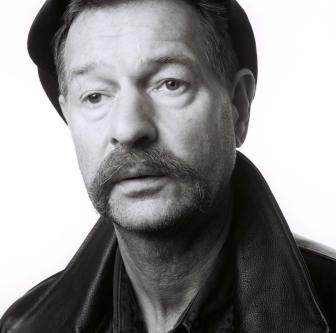Article
Tsjêbbe Hettinga (1949-2013)

March 08, 2013
There are persistent rumours, based on half-proofs, that Odysseus did not land at Ithaka, but in fact put to port in Friesland. That honestly seems like utter hogwash to me, but if I were to hear the rumor that Homer had returned in the twentieth century as a Frisian bard, I would immediately believe.
The murmur of the breakers of both islands
That my blood – that takes my mind away unnoticed,
[. . .]
And it smells by thinking of
the surrounding sea and wood, suddenly the smell of new forests
The bard who penned these lines was Tsjêbbe Hettinga, the internationally renowned Frisian poet, famed from Franeker to Colombia, whose utterly unique epic, visionary and mystical poems drew from the richness of the Frisian language. His poems depict a timeless world of light and color, full of grand themes like wanderlust, nostalgia, life and death, which rarely seemed to actuality connect to reality, or to prevailing attitudes in poetry. Only a few times did the echo of poets like Adriaan Roland Holst, Marsman, Slauerhoff, Baudelaire, Dylan Thomas and Yeats surface in his work.
When Hettinga wrote about the ocean it seemed as though, like Odysseus and the English painter William Turner, he first bound himself to the mast during a storm on the high seas. First comes the sense of rapture, then comes the language. The echoes of this rapture can not only be found in his language, but also in his presentation. This presentation was so overwhelming that it seemed like Hettinga had just been liberated from the proverbial mast. Hettinga was nearly blind, but his limited vision gave him the power “to hear, smell and feel” each image, as he himself once said. The intensity, the rhythm, the sound, and the richness of the color and melodies of his poetry did not just charm the Frisian population. On the world’s largest poetry stage in Medellín, Colombia, Hettinga touched over 10,000 spectators well before the Spanish translation of his poems was even read aloud.
With Hettinga’s passing, the world has lost a bard, Dutch poetry has lost one of its great icons, the Frisian language has lost one of its most powerful ambassadors, and Poetry International has lost a very dear friend.
© Bas Kwakman
Translator: Megen Molé
Sponsors












Partners
LantarenVenster – Verhalenhuis Belvédère

